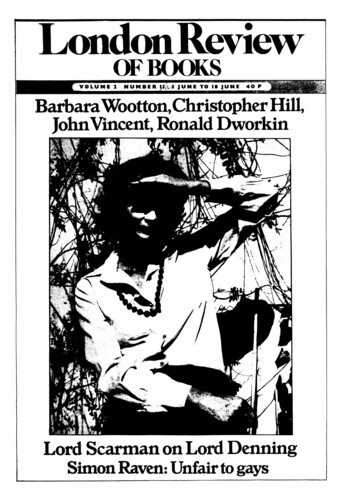Barraclough’s Overview
C.B. Macpherson, 19 June 1980
Historians are subject to a peculiar occupational hazard. Not only must they, like other scholars and scientists, leave no stone unturned until they have reached a satisfying conclusion to whatever problems they have set themselves: they must also – or so the convention of their craft seems to require – take the reader through most of their sifting of the evidence. This convention is perennially reinforced by the academic training of those who are to become professional historians. They must primarily be taught to search and sift evidence, and be tested by their skill in doing so. That skill is most readily judged, at both the apprentice and journeyman levels, by judging the candidate’s written ability to take the reader through the whole process. The effect of this training lingers. The historian, so trained, is apt not to see that the order of presentation of a theory need not be the same as the order of discovery. The natural scientists do see this. So have, at least in the past, the most outstanding social scientists: one need think only of Hobbes and Marx, who, while they did write some long books, could and did proffer succinct theoretical formulations without demanding that the reader follow them through the whole order of discovery of their theorems. So on the score of brevity historians are naturally, or culturally, under a handicap.

